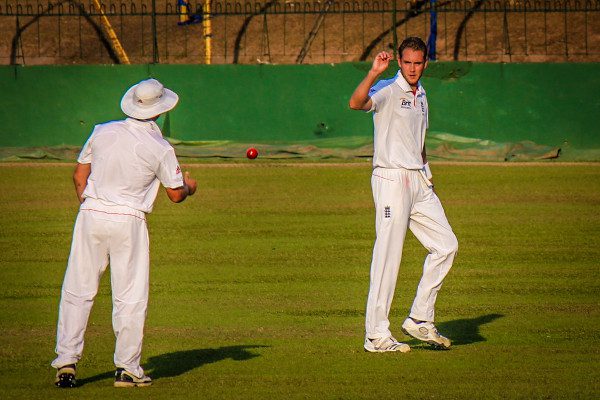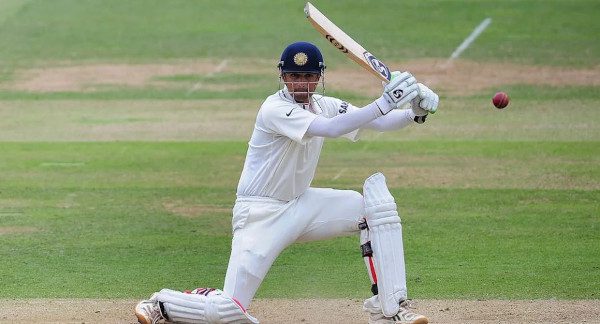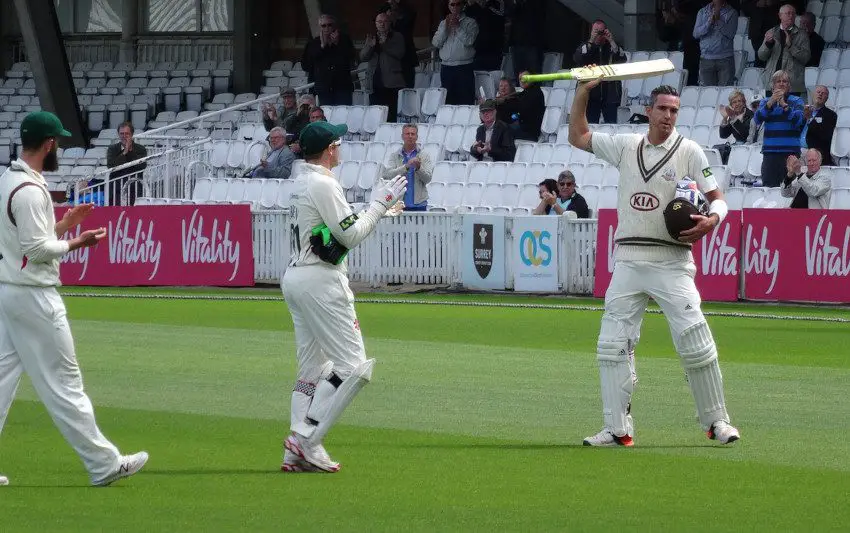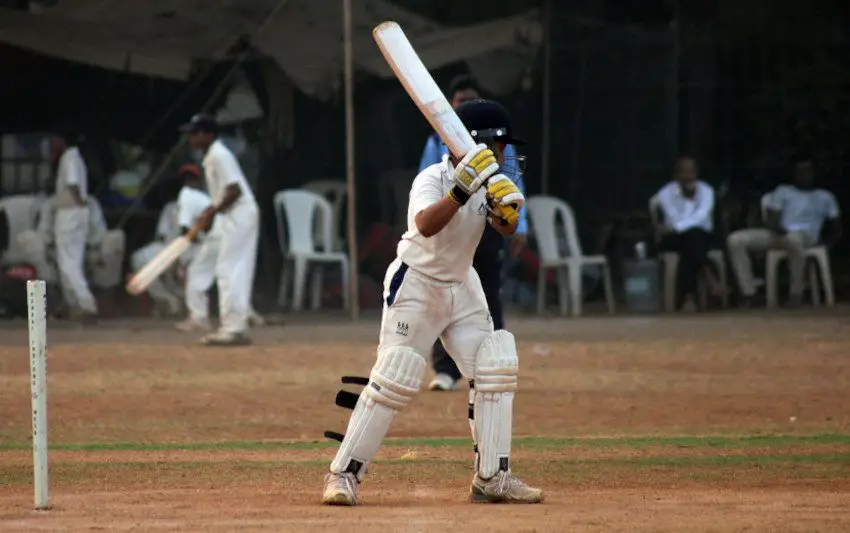Table of Contents
In test match cricket, it’s not always about how quickly you can score runs. On occasions, the state of the game requires batters to protect their wicket and occupy time. With that in mind, here are the 10 slowest innings in test match history.
Top 10 Slowest Innings in Test Cricket
Geoff Allott (New Zealand) – 1999
We’ve used a minimum of 50 balls for this qualification and the order starts with the lowest possible score. Back in 1999, New Zealand’s Geoff Allott batted for an entire 77 deliveries without getting off the mark.
This knock needs to be put into some context. Batting first, South Africa made a formidable total of 621/5. New Zealand were 320/9 when Allott walked to the crease and he needed to bat time.
He certainly did that and, while the Kiwis failed to avoid the follow on, this marathon effort did help them to finally draw the game.
Mansoor Ali Khan Pataudi (India) – 1973
Prior to Geoff Allott’s knock, India’s Mansoor Ali Khan Pataudi had held the record for over 25 years. Playing for India against England in February 1973, it took him 84 balls to make just five runs.
This was a surprising effort as India were pushing to declare at the time. As it was, Pataudi’s effort helped the game to end in a tame draw.
Stuart Broad (England) – 2013
Stuart Broad has scored some useful runs for England down the order and he tends to score them quickly. This time, however, he managed just six runs from 77 balls.
Broad’s marathon knock came against New Zealand in 2013, and it was vital as England scraped a draw with nine wickets down.

Damien Martyn (Australia) – 1994
Australia’s Damien Martyn was another dashing player, but he could clearly shut things down when the situation demanded. Playing against South Africa in 1994, he made just six runs from 59 balls.
This was another strange innings in a low scoring game. Chasing just 117 to win, Australia were dismissed for 111 to lose by five runs. Would they have got over the line if Damien Martyn had changed his approach?

Geoff Miller (England) – 1979
Geoff Miller was an off spinner who could make useful contributions with the bat on occasions. His highest score in tests was 98, but this effort came at the opposite end of the run charts.
Playing for England against Australia in the 1978/79 Ashes series, Miller made just 7 runs from 101 balls. This was another low scoring game where the batter was looking to use up time, but the ploy backfired as the Aussies won by 103 runs.
Rajesh Chauhan (India) – 1994
Rajesh Chauhan’s effort of nine runs from 96 deliveries came at Ahmedabad as India took on Sri Lanka in 1994. The innings took over two hours, but it was vital in the context of the test.
Chauhan protected his wicket as Mohammad Azharuddin scored 152 at the other end. India scored 358 and won the match by an innings and 17 runs.
Godfrey Evans (England) – 1947
Godfrey Evans was England’s wicket keeper for much of the late 1940s and 1950s and he could also be an obdurate batter. In a test match against Australia in Adelaide in 1947, he proved that by scoring 10 runs from 96 deliveries.
This was another strange display as England needed quick runs. They eventually did declare but the game ended in a draw.

Rahul Dravid (India) – 2007
He was known as The Wall because he was so hard to dismiss, and it’s no great surprise to see Rahul Dravid here. Against England at the Oval in 2007, made just 12 runs from 96 balls.
India were in trouble here at 11/3 so a rearguard action was needed. Having been in a winning position at 664 on first innings, the tourists had to settle for a draw.

Danny Morrison (New Zealand) – 1997
‘Danny the Duck’ they used to call him because he was such a terrible batter. Danny Morrison even released a ‘demon duck caller’ when his benefit year came round.
His overall batting record may have been a joke but this innings was no laughing matter. Morrison scored 14 runs in 137 balls against England in Auckland, and he defied the tourists as the Kiwis sealed a draw with just one wicket remaining.
Rassie van der Dussen (South Africa) – 2019
He’s known for compiling patient innings but, in 2019, Rassie van der Dussen took things to extremes. He made 17 runs so he’s at the bottom of this list, but it took him an incredible 140 balls to get there.
The innings, at Cape Town, took over three hours to complete. South Africa were looking to bat out time to save the game, but Van der Dussen’s dismissal led to a late order collapse and the hosts lost to England by 189 runs.
Conclusion
Some of these innings defy belief. How is it even possible to stay at the crease for 77 deliveries without scoring a single run? In Geoff Allott’s case, a lot of those balls would have passed harmlessly by the stumps but he would have had to play at some of them.
Would he not have got an edge through the slips or a juicy half volley that he couldn’t resist leaning into?
In most, but not all of these cases, the situation in the game demanded that the batters went on a ‘go slow’. The exceptions, such as that knock played by Mansoor Ali Khan Pataudi in 1973, are the ones that really interest me.


